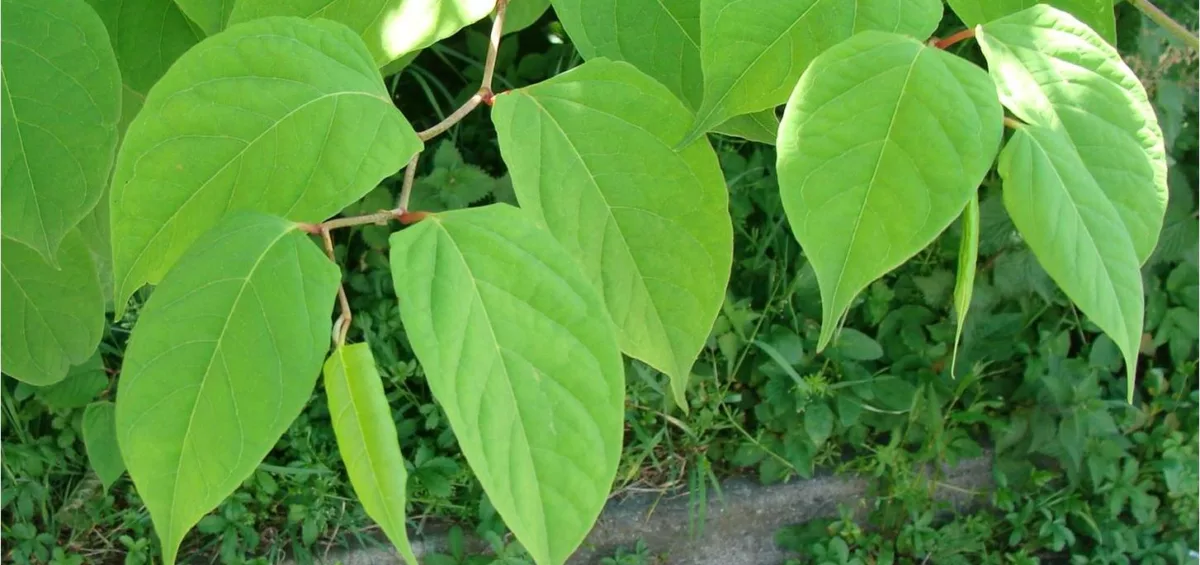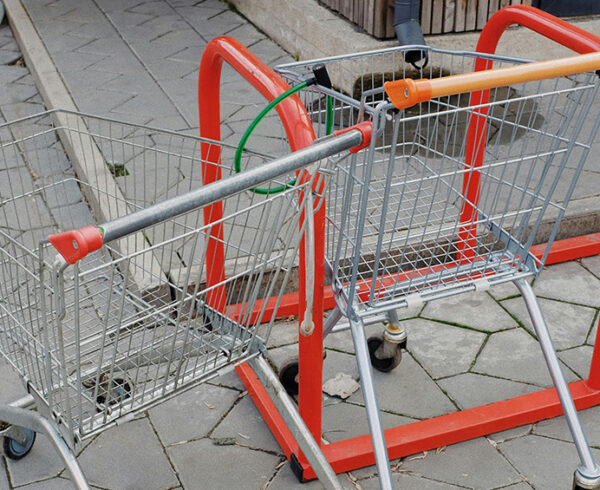Some of the below are controlled plants in the UK, meaning you could be liable for causing or allowing the plant to spread in the wild. Read on to find out how to identify some of the main invasive weeds and what to do next.
JAPANESE KNOTWEED
Japanese knotweed is a fast-growing, invasive weed that can often be seen growing in public spaces like train stations and lines or shopping centres.
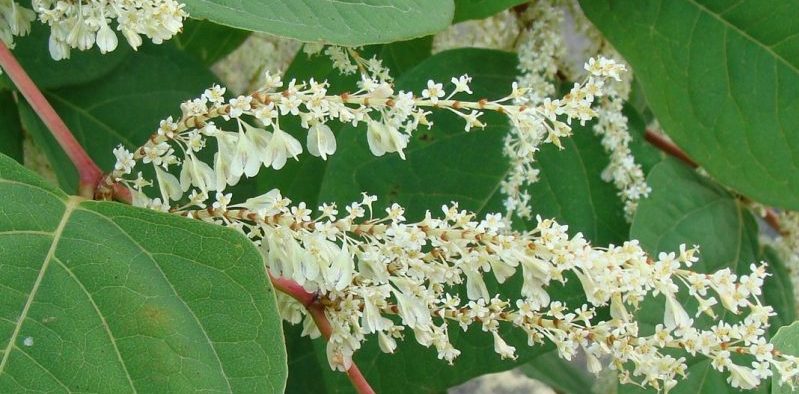
This weed is difficult to identify as it takes on different forms throughout the year. Japanese knotweed is a fast-growing plant that cannot be removed by weeding or cutting.
How to identify Japanese knotweed
This plant is difficult to identify due to its changing appearance throughout the year.
Spring
Spring sees the fastest growth of knotweed. Following the winter dormant period new shoots that emerge are red/purple and look like asparagus spears. The leaves are normally rolled up and dark green or red in colour.
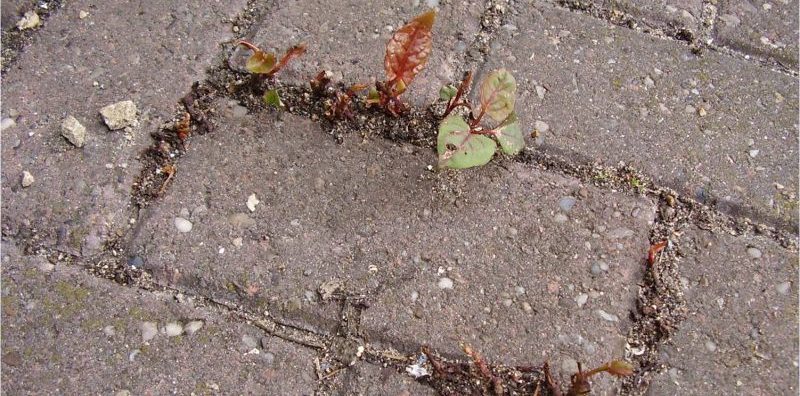
Summer
In the summer, knotweed leaves are green and the shape of them often represents a heart or a shovel. By late summer the plant will start to flower and small clusters of white flowers will appear. The plants can grow 2-3 meters in height if left untreated.
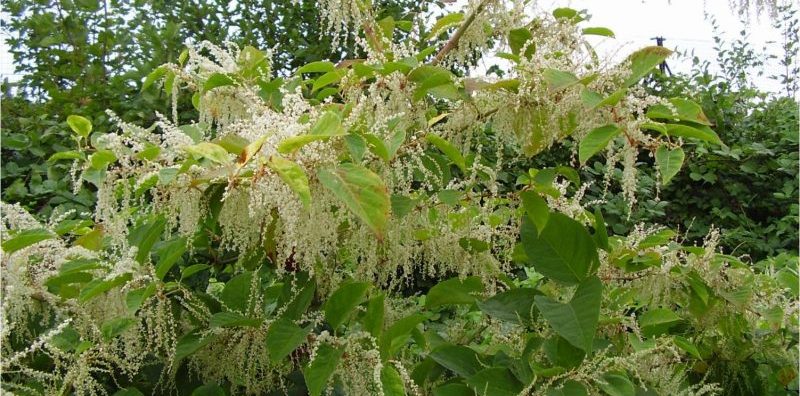
Autumn
In Autumn, the leaves start to turn yellow and start to wilt. If left untreated the knotweed plants are still about 2-3 metres tall and the hollow stems start to turn brown.
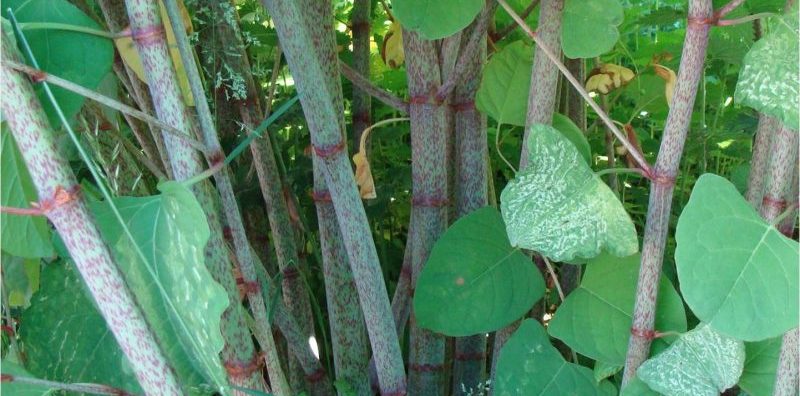
Winter
During late autumn and the beginning of winter the knotweed leaves will have totally fallen off and now the canes start to die off and the weed becomes dormant. The canes are hollow, dark brown and brittle and often become broken just above the base. They are often confused with bamboo due to their similar appearance.
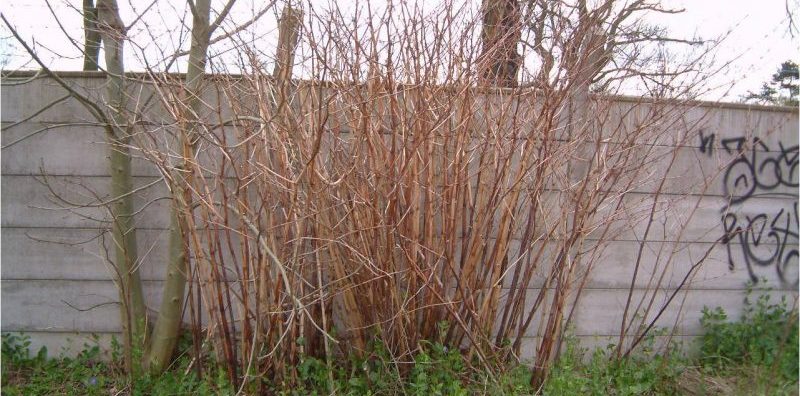
Can I remove Japanese knotweed myself?
You should not attempt to remove Japanese knotweed from your property, yourself, you should always instruct an expert.
Although it’s not illegal to have Japanese knotweed on your property, it is against the law to cause or allow the plant to spread in the wild.
What to do if you have Japanese knotweed growing on your property
If you have found Japanese knotweed on your property and you believe it was there when you bought the house, then you could be eligible to make a claim. It is a legal obligation for surveyors to declare the presence of Japanese knotweed to potential buyers as it can affect property value, due to it being so difficult to remove.
If you believe the Japanese knotweed on your property has come from public property i.e. a local Tesco, or the rail line, then you could also be eligible to claim. If the plant has grown from a neighbour’s garden, then claiming is more difficult as it is hard to prove where the plant originated from.
HOGWEED
Giant hogweed is an invasive weed which grows near canals and rivers but can encroach to private property. Giant hogweed’s sap contains toxic chemicals which react with light when in contact with human skin, causing blistering within 48 hours. Giant hogweed can produce up to 50,000 seeds per year, meaning it is well-adapted to spread.
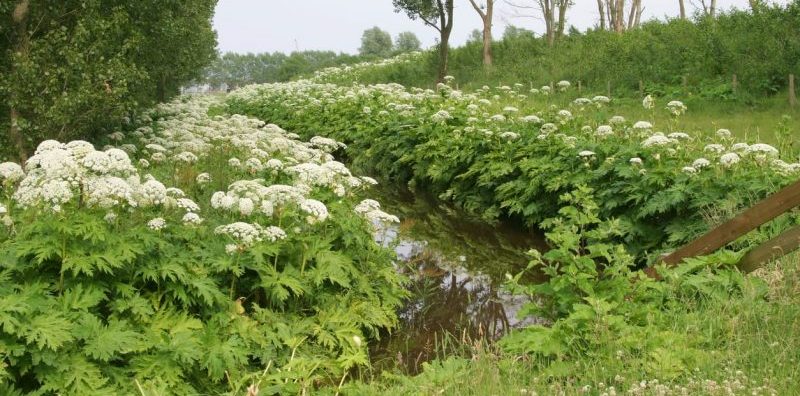
How to identify hogweed
Hogweed is a large weed with white umbrella-shaped flower heads. Its stems are reddish-purple with fine spines. It is a large weed, growing to around 4m with leave sup to 1.5m wide.
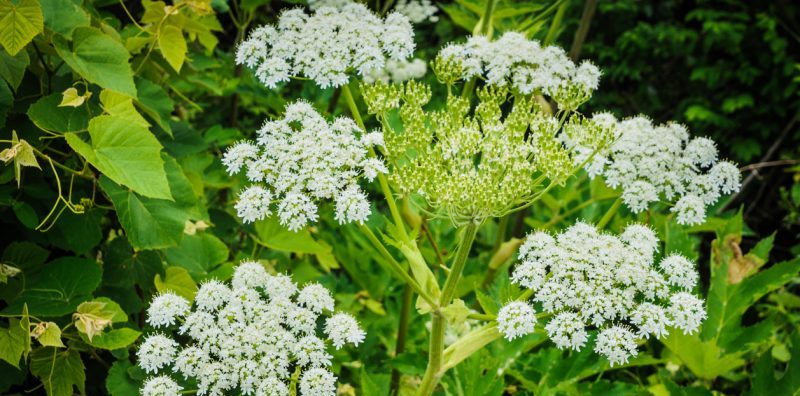
What to do if you have hogweed on your property
It is illegal to plant or cause giant hogweed to grow in the wild. However, given birds and waterways can carry seeds, which can grow up to 10 years once they’re dropped off, the weed spreads naturally on its own.
Removing the plant on your own is tricky. You can’t mow or weed the plant either as this will send up new growth and you could be exposed to the toxic sap.
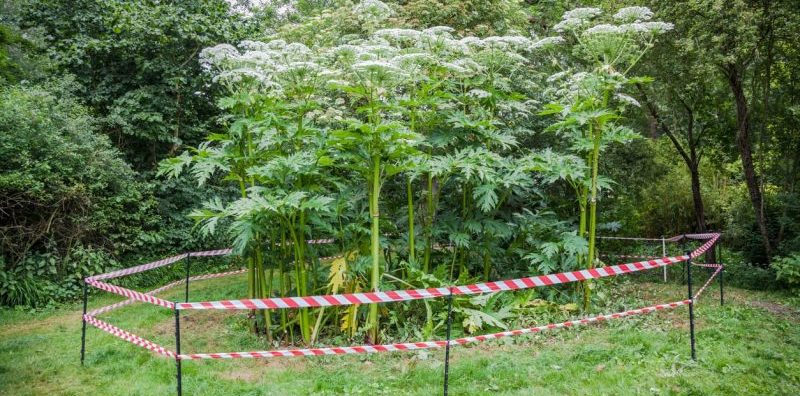
You should always call a professional who can safely destroy the plant and seeds. If you find hogweed has grown onto your property from nearby land such as a waterway or car park etc, then you could be eligible to claim for the treatment costs. If you notice Hogweed growing in your garden then you should take immediate steps to treat it as you are at risk of the plant encroaching into neighbouring properties where the owners may seek to claim against you for causing a nuisance.
BAMBOO
Bamboo is usually a desirable garden plant, but if left to grow unchecked, they can become invasive and become a weed. Due to their fast-growing underground stems, called rhizomes, shoots can pop up anywhere in your garden – or that of your neighbour. Although this is not considered an invasive weed, it can quickly get out of control.
How to identify bamboo
Bamboo tends to be a tall plant with thick cylindrical, jointed stems and green foliage.
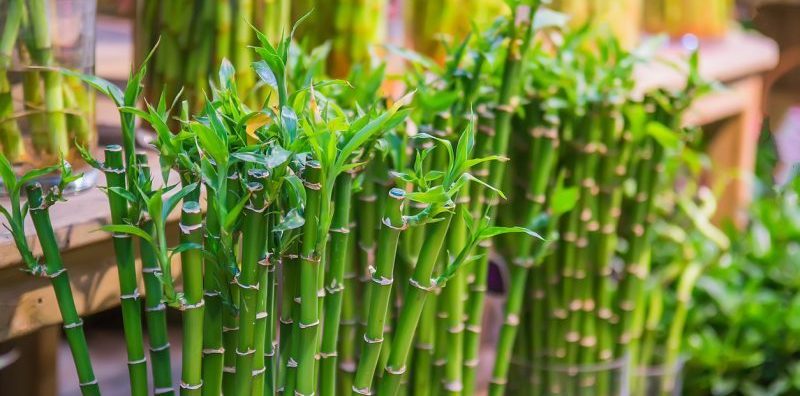
Bamboo represents a large group of plants of many differing species. In the UK, bamboo tends to come in clump forming or running bamboo. Clump forming bamboo have a root mass that spreads from the centre with canes springing up no more than 5-10cm from the existing plant.
Running bamboos spread by independent, horizontal underground stems from which canes can develop up to 60-80cm from the original plant. This means their roots need to be contained.
What to do if you have unwanted bamboo on your property?
If you find unwanted bamboo shoots on your property from neighbouring properties, then you could be eligible to claim, particularly if the shoots are damaging your garden or your property. In some cases, bamboo shoots have up rooted paving and even ruptured solid walls and features.
Bamboo is a growing problem, as it is not officially classed as an invasive species in the same way as Japanese knotweed. And unlike knotweed, there are currently no restrictions on planting bamboo. Because of this there have been an increase in the number of neighbour disputes after bamboo spread to a neighbouring garden.

We have acted for a number of clients who have taken legal action against their neighbour for nuisance caused as a result of a bamboo infestation. Accordingly the offending party has had to pay significant removal costs and legal bills because they allowed the bamboo to spread onto the neighbouring land.
Due to the increase in nuisance claims it is something that the mortgage companies are closely looking at and soon may impose restrictions on lending on properties that suffer with bamboo infestations.
Have you been victim to any of these fast-growing weeds on your property? Contact our team today to find out how they can help you, as you could be eligible to make a claim. Operating on a no-win-no-fee basis, we’re here to help!


